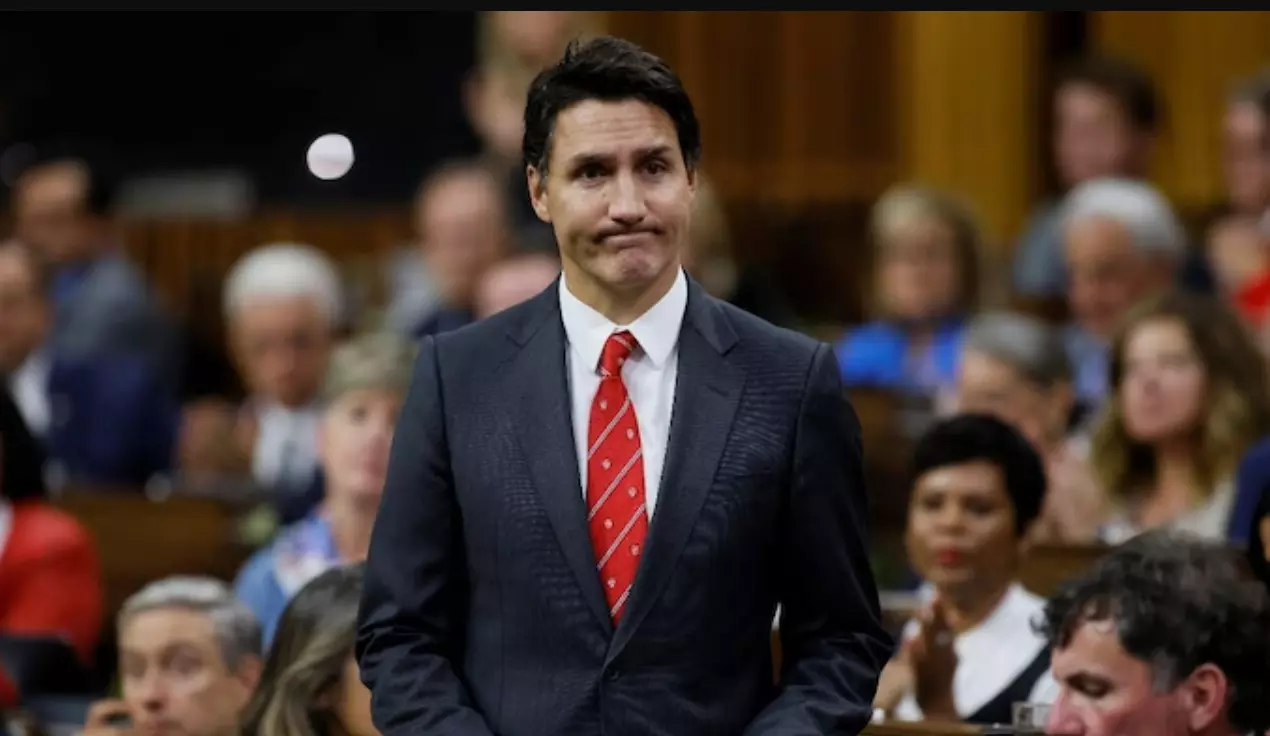Hitting the nadir

In a rare instance on Monday, Canadian Prime Minister Justin Trudeau publicly spoke about investigating “credible allegations” regarding the potential involvement of the Indian government in the murder of pro-Khalistan leader Hardeep Singh Nijjar in British Columbia. Negative public comment by a nation head against another country carries a lot of weight. Trudeau’s unsubstantiated allegation was bound to attract strict condemnation from the Indian side. The Indian government also retaliated against the expulsion of a senior Indian diplomat in Canada by summoning the Canadian High Commissioner and expelling Canada’s Station chief for intelligence a day later. Thanks to these developments, the ties between the two allies have now hit the nadir. The issue of Khalistan, which has a direct bearing on the sovereignty of India, has been a sore point in India-Canada bilateral ties for a long time. Despite this pestering contention, the two countries have managed to maintain strong trade and people-to-people ties over decades. Remarkably, India was Canada's 10th largest trading partner in 2022, with bilateral trade in goods standing at a staggering USD 11.9 billion — 56 per cent increase from the previous year. Earlier this year, the visit of Canadian Foreign Minister Melanie Joly to India had sparked hopes about the accelerated materialization of a free trade agreement. Now, with the question of sovereignty coming to the fore, the trade agreement has been put on a backburner, which is a major setback for both countries. While India, as a fast-developing nation, seeks to expand its trade frontiers across the globe, Canada, like other Western countries, sees India as a potential counterweight to the Chinese dominance in the South Asian region. On a diasporic level, Canada is home to the world’s largest Sikh population outside India — numbering around 7,70,000 people, accounting for 2.1 per cent of the country’s population. Paradoxically, while this strong diasporic tie is a reliable tenet of India-Canada relations, it has also, indirectly, been at the centerstage of the conflict between the two nations. In June this year, the Indian External Affairs Minister had remarked, “For us, how Canada has dealt with the Khalistani issue has been a long-standing concern because, very frankly, they seem to be driven by vote-bank politics.” Jaishankar’s remarks may not be completely unfounded. Justin Trudeau’s Liberal Party is known to bank upon the support of the Sikh community, and his minority government is backed by Jagmeet Singh-led New Democratic Party (NDP). Coincidently, within two weeks of Jaishankar’s comments, pro-Khalistan leader Hardeep Singh Nijjar was shot dead in British Columbia. Given the intensity of allegations made by Trudeau, and the subsequent repercussions, it might be wrong to presume that his actions are driven solely by domestic compulsions. Before speaking out publicly, Trudeau claims to have raised the issue on a bilateral level on the sidelines of the G20 Summit, only to receive a short shrift. The allegations against the Indian government, if found true, can be considered as an absolute breach of sovereignty, bordering on criminality. If in ownership of a substantial proof on this matter, it was only obvious for Canada to cast its aspersions. It may be pertinent to note here that two other pro-Khalistan leaders — Paramjit Singh Panjwar and Avtar Singh Khanda — had died around the same period as Nijjar. Paramjit was shot dead in Pakistan in May by an unidentified person while the death of Khanda in the UK was not considered suspicious by the police. If Trudeau claims to have identified links between the death of Nijjar and the Indian government, he must prove his point convincingly, or else backtrack from his statement. As per a report by Washington Post, Canada was learnt to have held backdoor discussions with its closest allies, including Five Eyes intelligence-sharing countries, to publicly condemn Nijjar’s murder at the G20 Summit. His appeal, obviously, was not heeded to. However, the US and the UK, which are also home to a significant Sikh population, have now expressed concern over the matter. Ironically, India’s stand on the matter is analyzed by some as a test of its loyalty to the West. Speculations about with which party will the larger West align — India or Canada — are also being floated. These divisive perspectives need to be abandoned for the sake of stable geopolitics. The entire issue should be viewed through the lens of sovereignty and territorial integrity. India has done the right thing by strongly asserting its non-involvement in the killing of Nijjar. Canada should not only prove or withdraw its allegations, but also stop extending support to nefarious elements who challenge India’s sovereignty and target Indian diplomats in Canada. Furthermore, it is the joint responsibility of both India and Canada to ensure that their bilateral ties don’t suffer in the long run.



